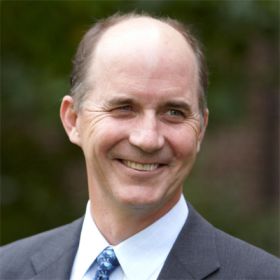Carter Roberts
MBA 1988
MBA 1988
“Nature feeds our children, it puts a roof over our heads, and stabilizes our climate. If we screw it up, we put ourselves at risk.”
After abandoning an effort to start a green-products delivery business with an HBS classmate during the fledgling days of the Internet, Roberts was hired to run The Nature Conservancy’s Boston office. He spent 15 years with TNC before being offered the Chief Conservation Officer position at WWF in 2004. For the past eight years, he’s served as the organization’s President & CEO. During that time WWF has signed Memorandums of Understanding with 56 of the largest 100 companies in the world, and worked closely with firms like Coca-Cola to set science-based targets that lighten each company’s footprint on the earth.
While environmental protection was once considered the domain of governments, Roberts contends that great business leaders can lend a long-term perspective to discussions that might otherwise follow the short-term cycles of politics. “[Companies] have 20- and 50-year scenarios,” he explains, “and when they look at the future of the natural world they are scared.” In addition to climate risks, Roberts cites the growing scarcity of natural resources — which destabilizes supply chains and stirs up geopolitical conflict.
No matter what route an MBA student chooses——whether to work in the private sector, with a nonprofit, or in government——Roberts offers the same advice: “The most essential skill is being able to bridge all three sectors, because the best answers lie in the middle.” He also encourages MBA’s to “always talk about the issues you care about. You never know where it’s going to lead you.”

